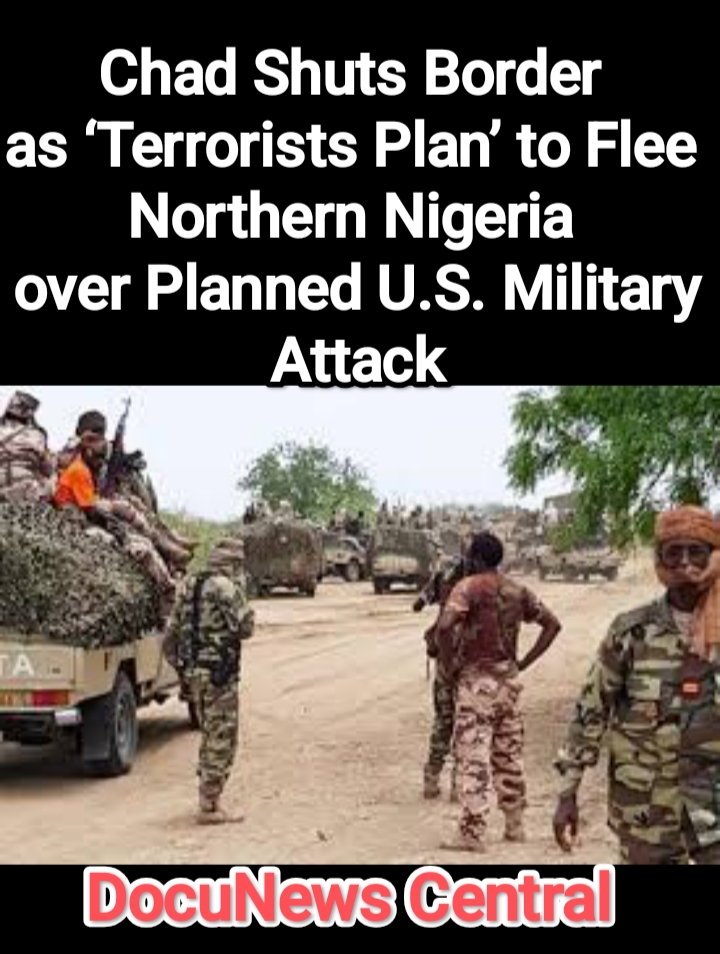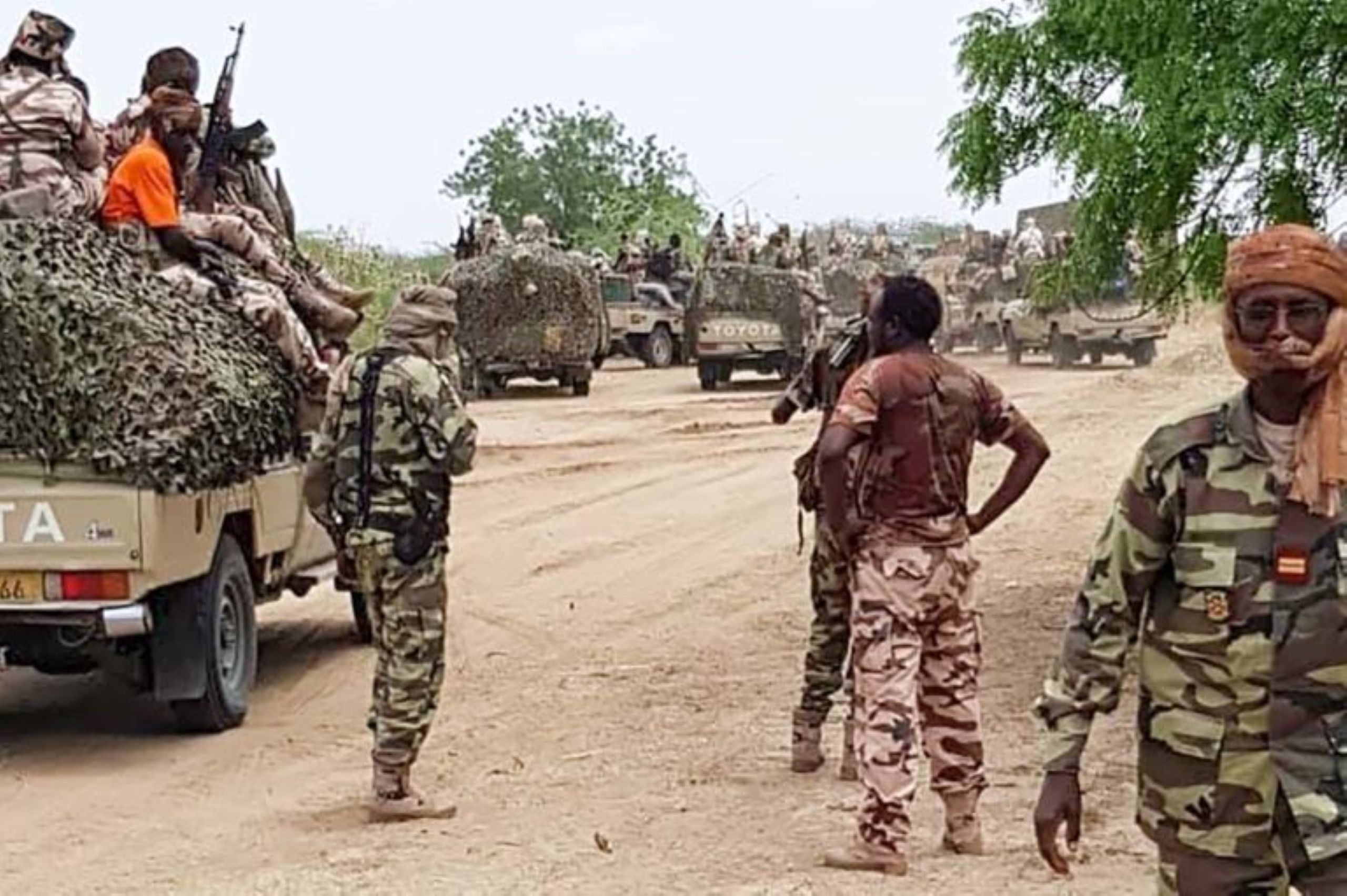


In a dramatic move, the government of Chad has announced the immediate closure of its border with Nigeria. The action follows intelligence reports suggesting that terrorists operating in northern Nigeria are planning to flee into Chadian territory. This decision comes amid growing speculation about a possible U.S. military operation targeting militants in the region over alleged Christian killings and genocide.
The announcement has sparked widespread attention across West Africa, given the tense regional atmosphere and ongoing insecurity around the Lake Chad Basin.
What the Announcement Says
According to official statements, Chad’s authorities moved to close border crossings after receiving intelligence that terrorist elements from northern Nigeria were preparing to enter Chadian territory. The backdrop includes rumors of a potential U.S. military operation in Nigeria, possibly involving airstrikes or special forces missions targeting extremist hideouts.
Chad’s move appears both preventive — to stop a militant spill-over — and diplomatic, as the country seeks to avoid becoming entangled in a larger regional conflict.
Why This Matters
1. Regional Security Implications
The border between Chad and Nigeria has long been porous, especially within the Lake Chad Basin region. This area has witnessed the movement of insurgent groups like Boko Haram and ISWAP. By shutting its border, Chad signals a readiness to secure its frontier and prevent possible infiltration during uncertain times.
2. Diplomatic and Sovereignty Concerns
Chad’s decision underscores Africa’s sensitivity to foreign military involvement. Any U.S. military intervention in Nigeria — whether real or perceived — could trigger diplomatic ripples across neighboring countries. For both Chad and Nigeria, this raises new questions about sovereignty, trust, and regional collaboration in counter-terrorism.
3. Nigeria’s Internal Security Pressure
From Nigeria’s perspective, the border shutdown highlights its ongoing security challenges. With Chad sealing off entry points, Nigeria faces additional pressure to manage domestic insurgent threats effectively or risk diplomatic isolation from key neighbors.
What We Don’t Know Yet
- Whether the U.S. has officially confirmed any planned military action in Nigeria.
- The specific border crossings affected and the duration of Chad’s closure.
- Details about the intelligence Chad acted upon and which groups were implicated.
- Nigeria’s official diplomatic or military response to the development.
Potential Scenarios and Implications
| Scenario | Implication |
|---|---|
| The U.S. launches a military operation in Nigeria | May intensify regional insecurity and push militant movements toward neighboring states. |
| Chad maintains long-term border closure | Could disrupt trade and affect border communities economically and socially. |
| Regional cooperation strengthens | Improved intelligence-sharing and joint operations could emerge among Nigeria, Chad, and Niger. |
Why This Matters for Nigerians
For Nigerians, especially those living in the north and border states, Chad’s decision is a reminder of how external developments can influence national stability. It emphasizes the need for stronger regional diplomacy and security intelligence coordination.
Final Thoughts
Chad’s border closure may seem defensive, but it reveals deeper issues surrounding trust, security, and regional unity in West Africa. As Nigeria faces ongoing insurgencies, both internal leadership and cooperation with its neighbors will be crucial to prevent wider destabilization. The coming days will reveal whether this action strengthens or strains regional alliances.
Note: This article is based on currently available information and may be updated as new facts emerge.






